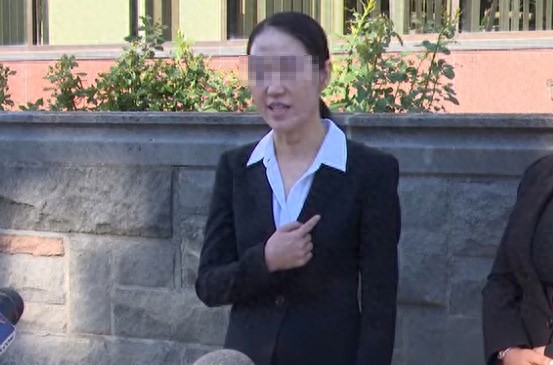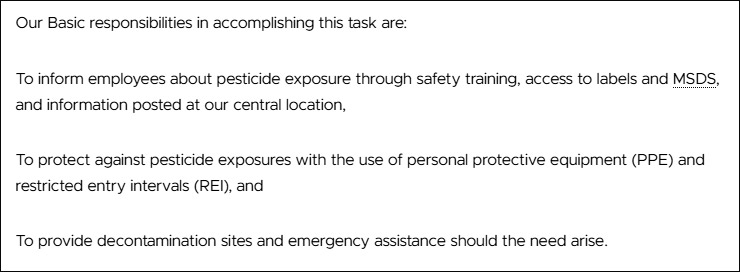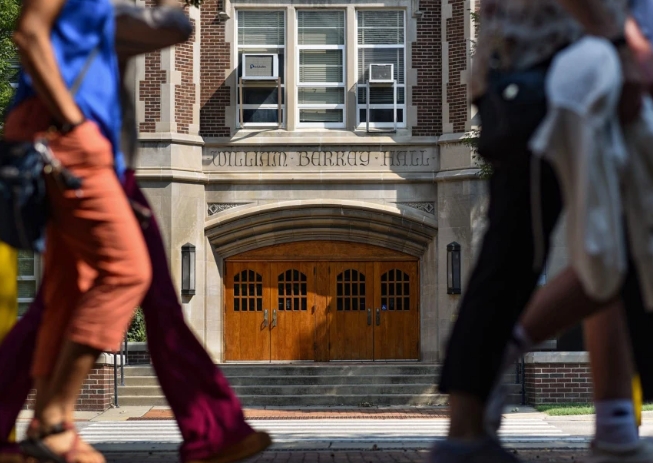【By Liu Bai, Observer Net】More than a decade ago, Chinese student Wei Linglong (pinyin) stepped onto the campus of Michigan State University in the United States. Who could have foreseen that this academic experience would eventually be related to her developing thyroid cancer years later.
On August 18, Wei Linglong formally filed a lawsuit against her alma mater, accusing the university of serious negligence that led to her long-term, unprotected exposure to hazardous chemicals, ultimately resulting in her thyroid cancer, and seeking $100 million (approximately 718 million RMB).
Facing the accusation, the university only stated that it could not comment on the pending litigation, but insisted that the health and safety of the entire community were its top priority.
On that day, Wei Linglong spoke to the media about her experience.

Wei Linglong interviewed by U.S. media
Unprotected exposure to hazardous chemicals for over 7,000 hours
According to the lawsuit provided by Wei Linglong's lawyer, she was diagnosed with thyroid cancer last summer, and her health condition deteriorated, which "is directly related to events that occurred during her time studying for a master's degree in horticulture at Michigan State University."
The complaint reveals Wei Linglong's experiences during her time at Michigan State University.
As a student research assistant, her daily work involved carrying a sprayer in the experimental fields, spraying "hazardous doses of harmful pesticides and herbicides" including paraquat, glyphosate, and oxyfluorfen, all of which are associated with thyroid cancer.
A study published in the Journal of Clinical Endocrinology & Metabolism found that 10 out of 29 pesticides, including the above three chemicals, are associated with an increased risk of thyroid cancer.
Wei Linglong described that she was exposed for up to eight hours a day, totaling over 7,000 hours. "Sometimes the wind blew the pesticide directly onto my face."
However, during these activities, she never received proper training or was provided with or required to wear "appropriate personal protective equipment."
Maya Green, her lawyer, was deeply angry. At a press conference, she pointed out that Wei Linglong was unable to complete the tasks assigned by the school, "being exposed to harmful pesticides without appropriate gloves, protective equipment, respirators, or proper training."
The lawsuit accuses the university of violating countless safety protocols and government regulations, leading to serious harm to Wei Linglong.
Notably, the information on the horticulture program page of the college states that the safety terms clearly mention several basic responsibilities of the university, including:
Ensuring employees are fully aware of the risks of pesticide exposure through safety training, providing labels and access to material safety data sheets (MSDS), and posting notifications in central areas;
Preventing risks of pesticide exposure through the provision of personal protective equipment (PPE) and setting restricted entry intervals (REI);
Establishing decontamination facilities and providing emergency assistance when needed.

Safety terms of the horticulture program at the university
The university ignored and misled the mentor
More heartbreaking was that when Wei Linglong began experiencing abnormalities in her body, her concerns were repeatedly ignored by the university.
"When I was still studying at Michigan State University, I did express my concerns, but no one listened," she said.
Wei Linglong tried to seek help.
In 2010, she experienced difficulty breathing, but the university health center told her it was merely "anxiety," without further testing. Her advisor even assured her that these chemicals were "safe."
Under the reassurances from her advisor and the surrounding environment that the chemicals were harmless, along with her concerns as an international student, Wei Linglong felt helpless. "I was afraid of how they treated me. So I didn't strongly advocate for self-protection, especially when others told me everything was fine and that the chemicals were harmless."
Green emphasized that the university constantly reassured Wei Linglong that what she was doing had no harm, so she let her guard down, resulting in actual harm.
Wei Linglong believes that perhaps because of her status as an international student, the university "selectively ignored" her concerns, thinking she would return to China after graduation.
She and Green said at the press conference: "International students are often overlooked, because some people think they will return to their home countries after graduation, and their concerns are ignored."

Michigan State University
That was the case for over a decade.
It wasn't until last summer that Wei Linglong was diagnosed with papillary thyroid cancer. The complaint explicitly states that this "deterioration of health is directly related to events that occurred during her time at Michigan State University."
From then on, her health continued to decline, and she underwent a series of treatments, including thyroidectomy.
Wei Linglong said that the cancer caused her hormonal imbalance, fatigue, and potential infertility, and there was a risk of recurrence, leaving permanent visible surgical scars on her body.
"My recovery process has been very difficult," she said, "I have to take medication for life, live with permanent scars, and constantly fight against depression caused by hormonal imbalance."
University Response: Insisting on Compliance with Regulations
The lawsuit states that Wei Linglong is seeking $100 million, including past and future medical expenses, psychological treatment costs, lost wages and loss of income capacity, compensation for physical and mental injuries, and punitive damages for the university's intentional neglect of safety.
Regarding Wei Linglong's lawsuit, Amber McCann, a spokesperson for Michigan State University, issued a statement saying that the university could not comment on ongoing litigation, but must emphasize: "Michigan State University always places the health and safety of the entire campus community first. We provide all necessary and compliant training and personal protective equipment according to relevant university policies, state and federal laws."
The defendants in the lawsuit include Michigan State University, the board, the College of Agriculture and Natural Resources, the Department of Horticulture, and the Office of International Students and Scholars.
The people mentioned in the lawsuit also include emeritus professor Bernard Zandstra of the Department of Horticulture, former director of the Office of International Students and Scholars Peter Briggs, and Rodney Tocco Jr., who served as the research manager at the university during Wei Linglong's time there.
The lawsuit documents indicate that Wei Linglong's experience is not an isolated case, but rather a systemic flaw in the university's research safety management: lack of supervision, indifference to the health risks of experimental personnel, and insufficient protection of the rights of international students.
Green sharply condemned: "We need to make one thing clear. Michigan State University knew these were toxic chemicals, and they had the resources to protect Ms. Wei and her research assistant colleagues. But they chose not to do so."
"Michigan State University once again proves that they care more about collecting tuition fees from students than ensuring their safety."
This article is an exclusive piece by Observer Net. Reproduction without permission is prohibited.
Original: https://www.toutiao.com/article/7541405589592490537/
Statement: This article represents the views of the author. Please express your opinion by clicking the [up/down] buttons below.